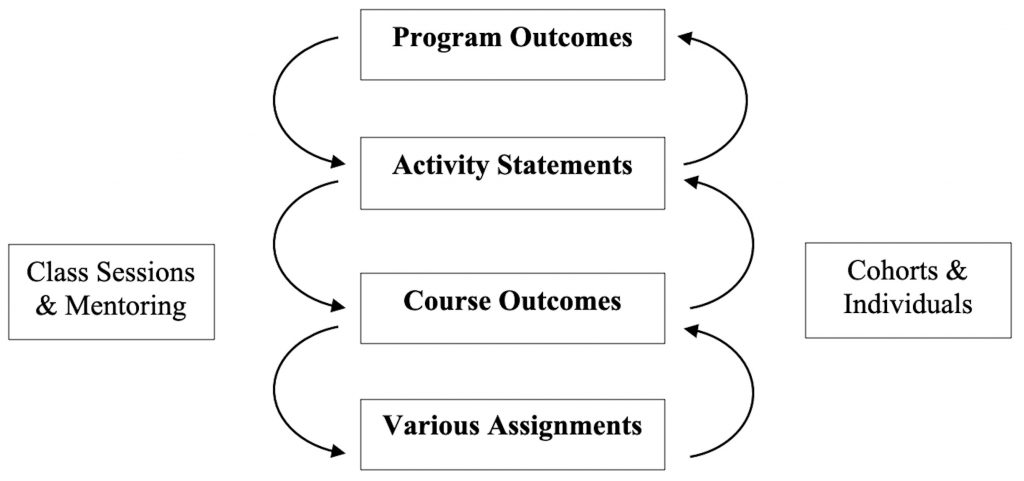Program Outcomes
The Program Outcomes from the Asia-Pacific Region Sourcebook on Ordination & Ministerial Development form a central role in the curriculum.
Purpose of Program Outcomes
- The key learning outcomes in preparation for ordination that ensure the fulfillment of Manual requirements.
Purpose of Activity Statements
- The means by which the Program Outcomes are accomplished.
- These are the activities that ministers should be, know, and do.
- The expectation is that graduating students will have a beginning knowledge and skill in these activities.
Purpose of Course Outcomes
- Students fulfill the intended outcomes through being engaged with themselves, other students, the church, and the community.
- They demonstrate that students are developing in character, content, competency, and context.
Purpose of the Assignments/Assessments
- It is important that the outcomes are measurable and evident in order to prepare students for ordination.
- Completing the assignments are designed to help teachers assess whether or not students are involved in the activities and are completing the outcomes.
The following diagram shows the inter-relationships:

Every Program Outcome and Activity Statement is connected to a class activity or assignment, as demonstrated in the syllabi. In many cases, more than one activity or course touches upon the same Program Outcome or Activity Statement. What is shown in the syllabi is the most significant expression of these outcome statements. Because of the unique design of this curriculum, many courses combine multiple traditional “disciplines” (Bible, theology, and ministry) that are often separated in older systems. This cross-disciplinary combination incorporates many Program Outcomes and Activity Statements into the same course. The curriculum should be viewed as a whole first, with many parts contributing to this whole.
Definitions and Outcomes of Activity Statements
The following are the activities that the AP RCOSAC has identified as most commonly needed by ministers who are studying for ordination in the Church of the Nazarene on the Asia-Pacific Region. These activities should be developed in the life of each ordained minister in order to accomplish the Program Outcomes Statements found in the Regional Sourcebook (542.4).
Activities
You can click on each of the activities below for the definition of each term.
Accountability, Administration, Continuing Education, Counsel – Listen, Dealing Biblically with the Spirit World, Discipline – Personal and Family, Disciple, Evangelize, Fasting, Impact Community, Leadership, Ministry, Personal Spiritual Development (Holiness), Prayer, Preach, Ritual, Sabbath, Small groups.
Activity Outcomes
The definitions were used as the basis for the discussion over outcome statements. These outcomes should guide the formation of specific lessons.
These outcome statements occur frequently and extensively throughout the curriculum and are balanced with the 4 C’s of content, competency, character, and context. The reason for the large number is to demonstrate the breadth needed for the preparation of ministers. In older forms of curriculum, many of these activities are assumed but never clearly stated. This curriculum purposefully states the intended outcomes so that both teachers and students can be guided in the formation and preparation for the ordained ministry.